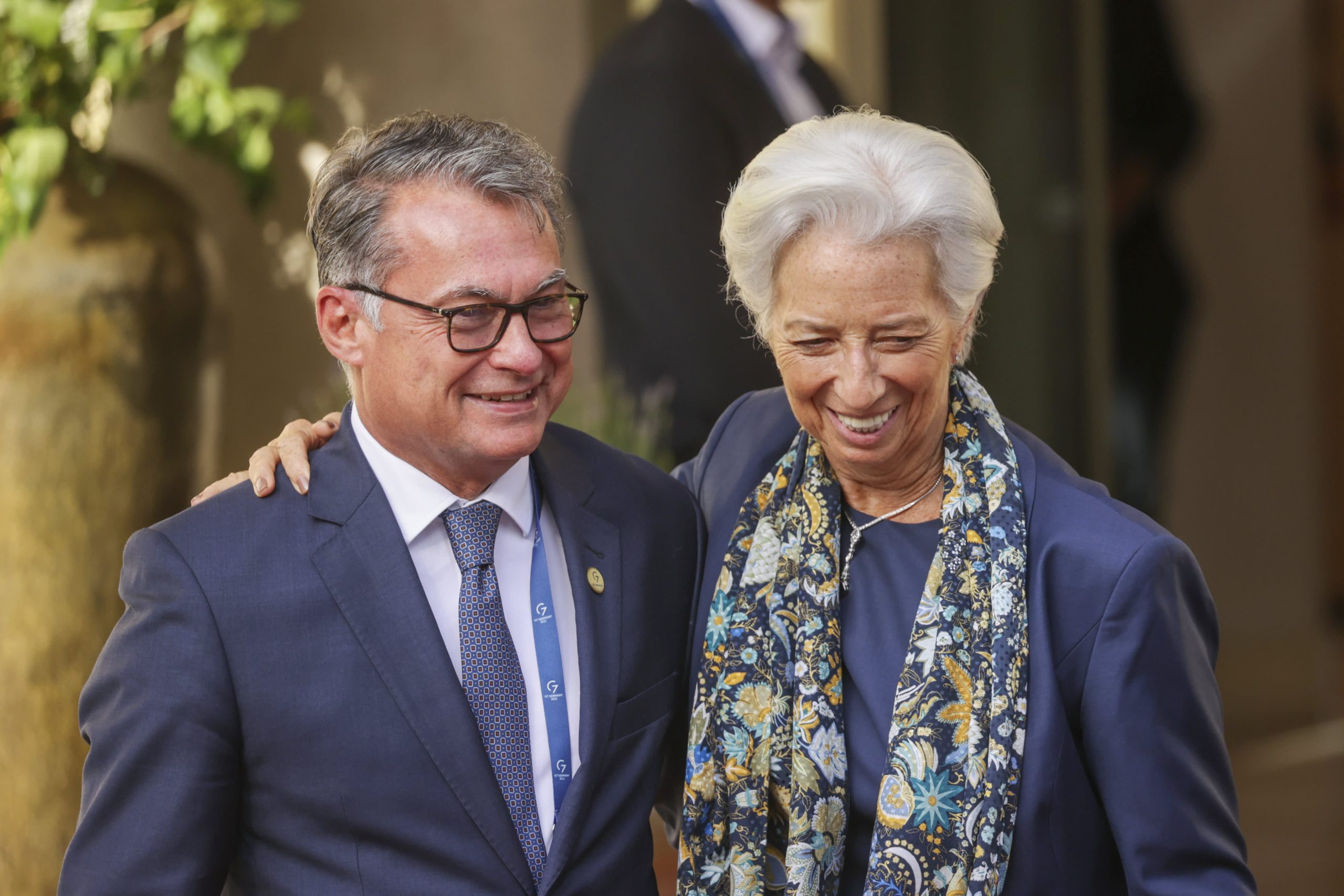Top European Central Bank board members said that the easing cycle is close to or at its end, in multiple exclusive interviews with CNBC.
Martin Kocher, European Central Bank Governing Council member and governor at Austrian National Bank, said that as long as nothing “drastic” happens, Europe is “OK.”
Speaking to CNBC’s Karen Tso at the IMF and World Bank annual meetings in Washington on Wednesday, Kocher said: “At the moment, I think we’re in a good place. So, there’s no reason to change anything, as long as there are no changes that force us to do something. And if you take the larger picture, yes, the easing cycle is close to an end or at its end, but there’s no reason to pre-commit at that stage.”
Due to high uncertainty that makes following guidance difficult, Kocher favors a meeting-by-meeting approach to decision-making, he said, otherwise central banks may commit to “something that you cannot deliver on.”
On inflation, Kocher said that expectations are “well anchored” and there are no reasons to above-target rates.
Indeed, European Central Bank Governing Council member Joachim Nagel said that while inflation will remain sticky, the current path for interest rates remains clear.
The Deutsche Bundesbank president said: “I do not see any reason to change anything if there is not something new coming, and I do not see where it might come from.”
In an exclusive interview, Nagel said global tariff tensions had created a “lose-lose situation for everyone,” but he cited the recent strength of the German economy in particular for providing optimism in Europe.
German economic institutes have recently revised up their growth forecasts for 2025, while Goldman Sachs predicts the economy will continue to expand 1.4% in 2026 and 1.8% in 2027.
The ECB’s Kocher added that the impact of tariffs has not yet been seen in data, but they make trickle down over time. If Chinese trade is rerouted to Europe, it could affect inflation expectations, he said. However, the U.S. and European trade deal “creates some certainty about the future,” the Austrian central bank chief said.
There could be some upside with better-than-expected growth, Kocher said, if the savings rate translates into consumption. However, up- and downside risks “are pretty much balanced” right now.
‘Agile pragmatism’
Nagel flagged private credit as an area of concern, saying the size of the market and “spillover from less regulated market participants” was something regulators would need to monitor closely.
In separate exclusive interview, ECB Governing Council member François Villeroy de Galhau said he recommended “agile pragmatism” when it comes to the path for interest rates, adding: “We are in a good position … but a good position is not a fixed position.”
Diverging from the views of his ECB colleague Nagel, France’s central bank chief suggested that the next rate move was more likely to be a rate cut than a rate hike.
This comes as he welcomed some political clarity in France, as newly reinstated Prime Minsiter Sébastien Lecornu suspended the controversial pension plan that has sat at the heart of France’s political deadlock. Villeroy said that lawmakers now need to tackle the fiscal uncertainty.
However, Pierre Wunsch, governor of the National Bank of Belgium, said in a separate exclusive interview that the probability the central bank would cut again has been “receding over the last few weeks or months,” in part due to the strength of the euro.
“Service inflation is still at 3%, so that’s something we need to monitor. Goods, energy, and non-energy industrial goods are close to zero or 1%, so that pulls inflation downwards,” he said, noting that inflation in 2026 is expected to be lower.
Meanwhile, Kocher pointed back to the Mario Draghi and Enrico Letta reports as a “blueprint” for European competitiveness and noted the importance of reforming the continent’s capital market. It is still fragmented, and “not used enough,” he said.
“We still have an outflow of capital from the European Union to other parts of the world, and there is too little investment, especially for what we need in terms of energy transition and infrastructure,” Kocher added.
Investors have reacted positively to this week’s political developments.
International: Top News And Analysis
Read the full article <a href="Read More” target=”_blank”>here.


